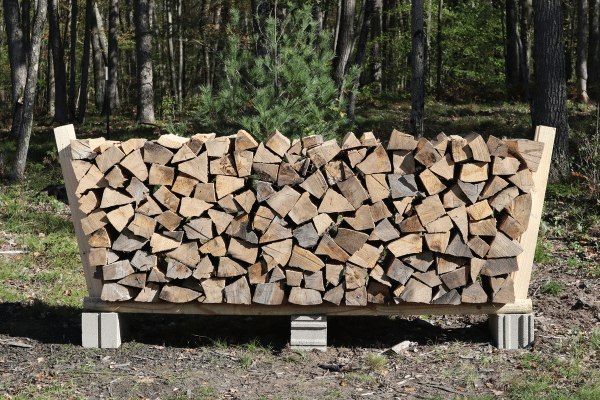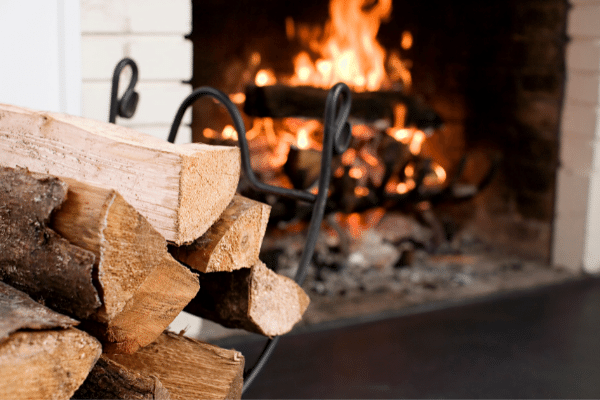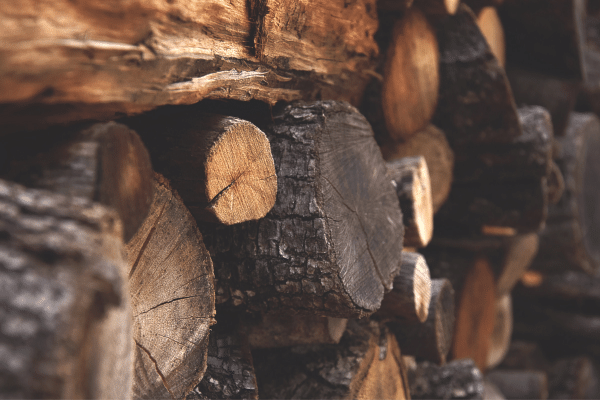- Home
- Types Of Firewood
- Is Juniper Good Firewood
Is Juniper Good Firewood?
This post may contain affiliate links so I earn a commission.
You may wonder, is juniper good firewood?
Although most evergreen trees are less efficient as firewood than deciduous trees, juniper is a surprisingly good candidate for firewood.
You might think of juniper as that shrubby evergreen often used in landscaping, but juniper is actually a small tree that can grow as tall as 25 to 30 feet if not pruned and maintained.
When it is pruned and routinely trimmed, junipers stay low with spreading branches.
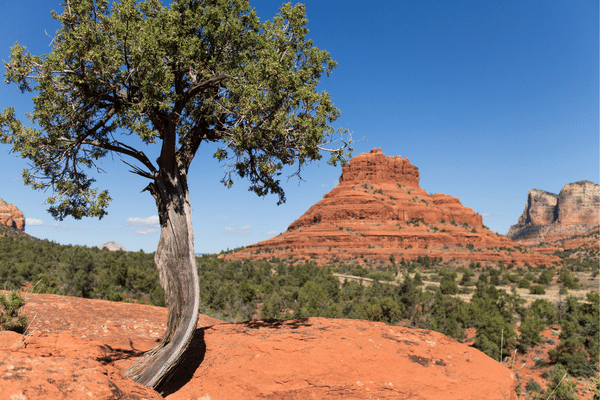
The landscape shrub, however, is native to the Northern Hemisphere and grows in the wild, in forests and wooded areas.
Let’s examine some aspects of juniper to answer the question......is juniper good firewood?
Building A Fire With Juniper
Juniper falls in the middle range on the BTU per cord scale.
It has an average BTU rating of 22 million BTUs per cord, although some varieties of juniper nudge up a few points.
BTU, which stands for British Thermal Units, is the unit of measurement for heat output.
While hardwoods typically have higher BTUs because the wood is denser, juniper holds its own against them.
For example, hardwoods like white oak, beech, and hickory have BTU ratings of 26.4, 27.5, and 27.7 respectively.
By comparison, white pine, spruce, and Balsam fir have BTUs of 15.9, 15.5. and 14.3.
As one of the highest BTU evergreens, juniper firewood can be compared to yellow birch, pecan, and black walnut, all of which have ratings between 21 and 23 million BTUs per cord.
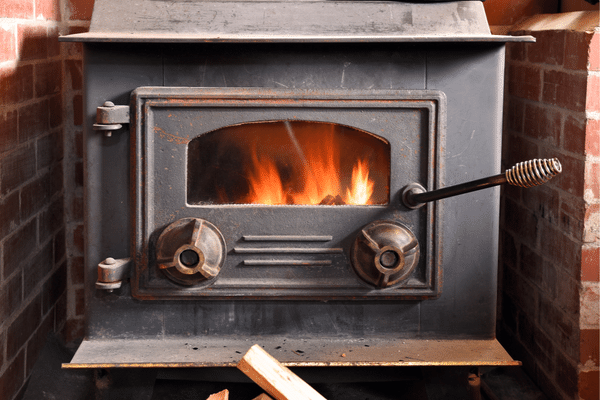
Although juniper has a high heat output, it is not a long-lasting, sustained heat.
It ignites easily and burns quickly, but the wood is low in density, meaning the fire won’t last as long as it would with a higher density firewood.
When you burn juniper, you don’t end up with a nice bed of coals that emit heat for hours, like you would with oak or ash firewood.
You will need to either mix the juniper firewood with other types of wood or commit to frequently stoking the fire.
Sometimes you don’t really need a fire that will burn hot all night.
In late spring, for example, you might just need a quick fire to take the morning chill out of the air.
When you are camping, you might want a quick, hot fire to fry your breakfast eggs before you head out hiking or fishing.
For these circumstances, juniper will serve you well.
Juniper Firewood Is Resistant To Rot And Insects
Juniper is a go-to wood for fence posts, patio furniture, and floorboards because it is naturally rot-resistant.
For an evergreen wood, it is dense, and the cellulose structure of the wood fibers leaves very few pockets for moisture and wood-destroying insects.
Juniper’s interior wood is also resistant to fungal attacks and insect infestations.
These are all desirable qualities for firewood, too.
When the juniper firewood is properly seasoned, it will last a long time before it decays.
Odor And Smoke Produced From Burning Juniper Firewood
Is juniper good firewood for producing enjoyable smells around the campfire?
Yes!
When burned, juniper wood gives off a light, pleasant smell.
People have described it as warm and inviting.
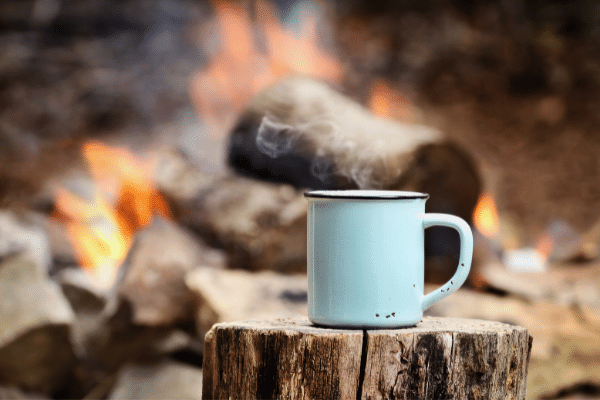
In fact, many folks associate the distinct odor of juniper with the holiday season.
Juniper smoke is commonly used in cooking, as the smoke gives foods a unique flavor.
It is popular for smoking meats because it gives poultry, fish, pork, and beef a delicious and distinctive taste.
However, even though juniper smoke has a pleasing aroma, it can be an irritant to sensitive people.
It can lead to breathing issues and eye inflammation.
If there is someone in your home who suffers from asthma or a chronic lung condition, you may want to avoid burning juniper, especially in an open fireplace or fire pit.
How Long Does Juniper Take To Season?
The average seasoning time of juniper firewood is roughly equivalent to other types of firewood....between six and twelve months.
Juniper will dry out faster if it is split, properly stacked, and stored in a dry place with good airflow.
When it is well seasoned, juniper wood will be lighter in color and not as heavy as unseasoned wood.
Most experts recommend that juniper season for a full year before it is used.
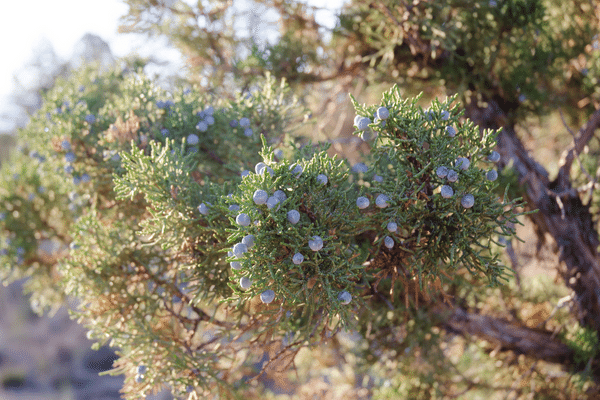
Evergreen trees tend to be higher in resin or sap than deciduous trees and juniper is no exception.
All trees produce sappy resin as a way to repair damage to the tree and to keep insects at bay.
In firewood, resin can help the wood ignite and remain lit.
Juniper has a high resin content, which means it is quite flammable.
Juniper firewood will catch fire easily and won’t snuff itself out, however, it can be rather messy when you are cutting it.
Wear gloves or your hands will be covered in the sticky sap.
Burning Juniper Firewood - Sparks And Creosote
Despite its high resin content, juniper wood is not overly sparky when burned.
It will produce some snaps, pops, and sparks, but overall, it can be burned in an open fireplace or a backyard fire pit without fear that it will shoot out an abundance of potentially dangerous sparks.
Juniper will however produce a moderate amount of creosote.
Creosote is an oily, dark-colored substance that is created when wood is burned, and the smoke is exposed to oxygen.
The smoke condenses to form creosote that accumulates on the walls of the chimney and can potentially ignite.
Because of juniper’s high resin content, juniper firewood produces a higher-than-average amount of creosote.
This doesn’t necessarily mean you should avoid using juniper firewood.
It just means that you should be more diligent about cleaning and inspecting your chimney.
Is Juniper Good Firewood To Split?
Juniper tree trunks are not large.
Even the oldest juniper trees rarely have trunks more than three feet in diameter.
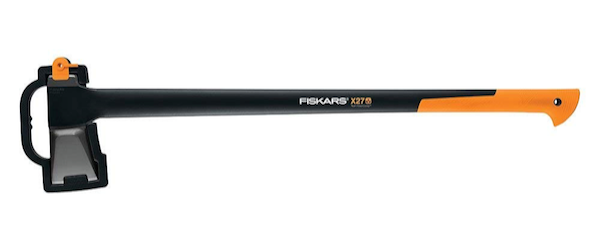
The small trunk size coupled with the high resin count makes chopping and splitting juniper more challenging than you might expect.
Most experts classify it as moderately difficult to split, so you'll want to use a good quality splitting axe or maul if you decided to split it by hand.
As an evergreen, it is not too heavy to haul out of the woods.
The trunks are generally straight, too, so the juniper firewood stacks easily.
Is Juniper Good Firewood - Overall
So, how does all this information stack up?
Is juniper good firewood?
We’d give it a solid B.
It is not an outstanding firewood, like oak, cherry, or Osage orange, but it has its merits.
It has a fairly high BTU rating for an evergreen, it has a pleasant aroma, and it ignites easily.
Its biggest drawbacks are its tendency to produce creosote and its difficulty in splitting.
If you have access to juniper, however, don’t shy away from using it as firewood.
